The Archives of the Lilian Voudouri Music Library
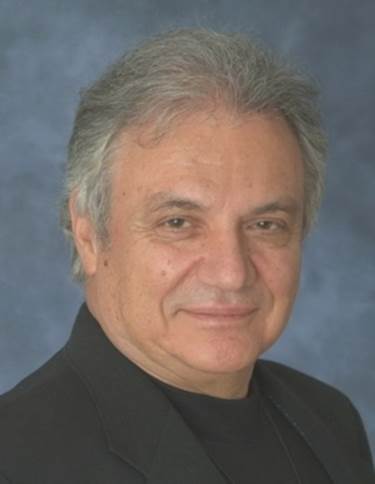
Theodore Antoniou Archive
Thodoros Antoniou, one of the most distinguished and prolific contemporary artists with a brilliant career as a composer, conductor and university professor, both in Greece and abroad. He studied violin, voice and composition at the National Conservatory of Athens, with further studies in conducting and composition at the Munich Academy of Music and the International Music Center of Darmstadt. He taught music at Stanford University and Utah University in the USA as well as at the Philadelphia Academy of Music before being assigned the position of professor of composition at Boston University in 1978. Most of the Greek composers of the younger generation were his students. An ardent supporter of contemporary music, he founded several contemporary music ensembles, including ALEA II at Stanford University, ALEA III at Boston University, the New Music Ensemble of Philadelphia, and the Hellenic Contemporary Music Ensemble. From 1989 he held the position of president of the Union of Greek Musicians.

Dion Aryvas Archive
Dion Aryvas was born in Athens but took his first music lessons in Derveni, Corinth, where he studied Byzantine music with Athanasios Psarros as a teacher. In 1946, he also started legal studies at the University of Athens, which he abandoned shortly after to devote himself exclusively to music. Along with Byzantine music, he studied singing and theory at the Hellenic Conservatory and in 1952 he left for further singing studies in Germany. In 1965, he returned to Greece, received his soloist diploma from the National Conservatory and began teaching. As a composer he was prolific and his works cover most genres of classical music. A characteristic of his compositions is that he uses a church organ in many of them. Finally, we should mention that his work "Sicilian Cycle" for voice and orchestra was awarded in 1982 by the Academy of Athens. He died in Athens in 2000.
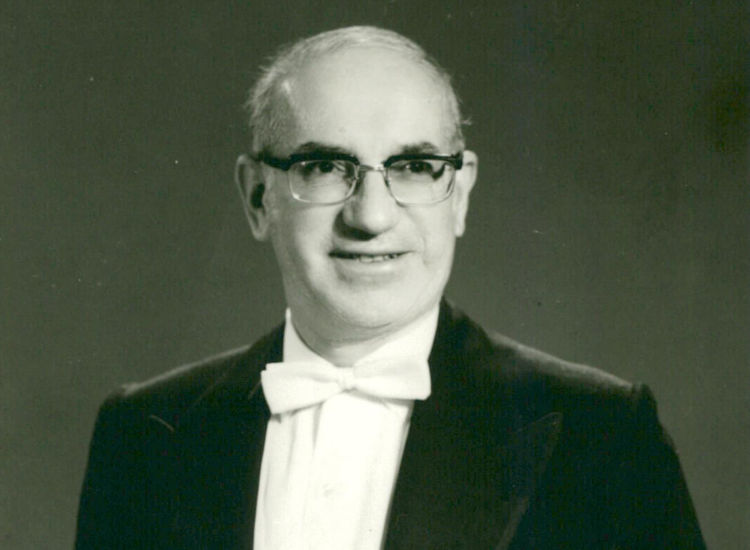
Nikos Astrinidis Archive
Nikolaos Astrinidis was born on May 6, 1921 in Ackerman, Bessarabia, Romania, to a Greek father and a Romanian-Russian mother. He was the third boy in the family and the only one who from his adolescence showed a great calling in music. He first started private lessons with Xenia Diteatef and shortly afterwards enrolled in the city's music school where he studied theory and piano, while his first compositional efforts date from around the same period. In 1939 he went to Bucharest to study chemistry at the local university and at the same time enrolled in the city's Conservatory. The artistic development offered to him by his studies at the Conservatory was enormous. Not only because he took lessons from important teachers such as Miron Soarec, but also because through them he came into contact with the famous composer Dinu Lipatti with whom he immediately started composition lessons. Unfortunately, however, this creative period for Nikos Astrinidis did not last long. The start of the Second World War and the invasion of the Soviets in Romania in 1940 scarred his family life and, by extension, his professional career. The family was split in two. Nikos and his parents remained stranded in Bessarabia for more than a year, losing all contact with his two older brothers, who were in free Romania. After various wanderings and adventures they managed to find refuge in the Middle East. Astrinidis enlisted as a volunteer in the Royal Air Force, trained and then was sent to serve in the Libyan desert. A slight leg injury in 1943 was the reason for his secondment to the Air Ministry in Cairo, but also the reason for him to take up music professionally. Cairo was at that time the most cosmopolitan capital of the world with many musical stimuli. This is how he started his musical career initially playing the piano in the music centers of the city and continued by collaborating with major symphony orchestras and participating in international competitions. In fact, in 1944 he received the First Prize for Piano Performance and Composition at the famous Eisteddfod Festival with his work "Cyprus Rhapsody", while the following year he conducted his symphonic work "Oedipus Tyrannus" at the Cairo Opera House. His service in the Air Force ended in 1946. However, he remained in Cairo for another year, until October 1947, when he went to Paris to take piano lessons at the Schola Cantorum with Marie Gourgue-Magnam. After graduating he began touring as a pianist almost all over the world until the early 1960s. During this period he visited Greece for the first time for concerts and also to see his family who had meanwhile settled in Thessaloniki. In the period 1959-1962, he settled permanently in the French Antilles, where, following an order from the French government, together with Colette Frantz, they founded and directed a music school and chamber orchestra in the region. In 1962 he returned to Paris and three years later in 1965 he made the decision to settle permanently in Thessaloniki, shaping the musical life of the city with his diverse activities. In particular, he took over the direction of the Philharmonic and the mixed choir of the municipality, he was a founding member of the Music Society of Northern Greece, he made efforts to create the Opera of Thessaloniki and the Chamber Opera of Northern Greece, and finally he was the director of the Macedonian Conservatory of Thessaloniki from 1980. This period of Nikos Astrinides' life in Thessaloniki was very fruitful and compositionally as he was inspired and created many of his great symphonic works including the oratorios "Kyril and Methodius" and "Psalms", the "Symphony 1821" and the "Concerto -Rhapsody". Many of them were even performed for the first time in the city under his direction. For his contribution to shaping the musical landscape in Thessaloniki, Nikos Astrinidis was awarded the Golden Cross of George I. He died on December 10, 2010, just before his 90th birthday.
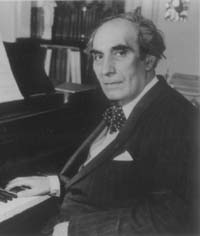
Marios Varvoglis Archive
Marios Varvoglis was a Greek composer born in Brussels. He studied music at the Conservatoire de Paris and the Schola Cantorum. He remained in Montparnasse, Paris until 1922 and he maintained close relations with artistic circles.After 1920 he taught at the Athens Conservatory and he became active as a music critic and conductor. He died in Athens.
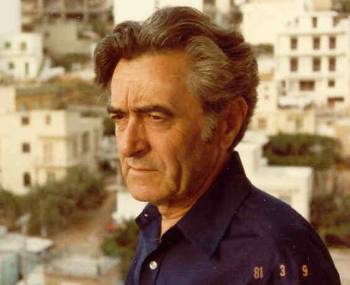
Dimitris Dragatakis Archive
Dimitris Dragatakis began violin lessons at the age of sixteen with Georgios Psyllas at the National Conservatory, and graduated in 1939. From 1949 he began composition lessons with Leonidas Zoras and Manolis Kalomiris at the same conservatory (composition diploma in 1955). At the urging of M. Kalomiris, he professionally turned to the viola and was, from 1944 and for twenty years, a member of the orchestra of the Lyric Stage. From 1977 to 1997 he was a professor of harmony, counterpoint, fugue and orchestration at the National Conservatory. He was Deputy Artistic Director of the National Conservatory, Vice-President of the Union of Greek Musicians and Vice-President of the State Orchestra of Athens. Many composers of the new generation were his students. He distinguished himself in many composition competitions, while for his entire work he was awarded the "Maria Callas" Prize from the 3rd Program of the Hellenic Radio and the "GA Papaioannou" Prize of the Academy of Athens.
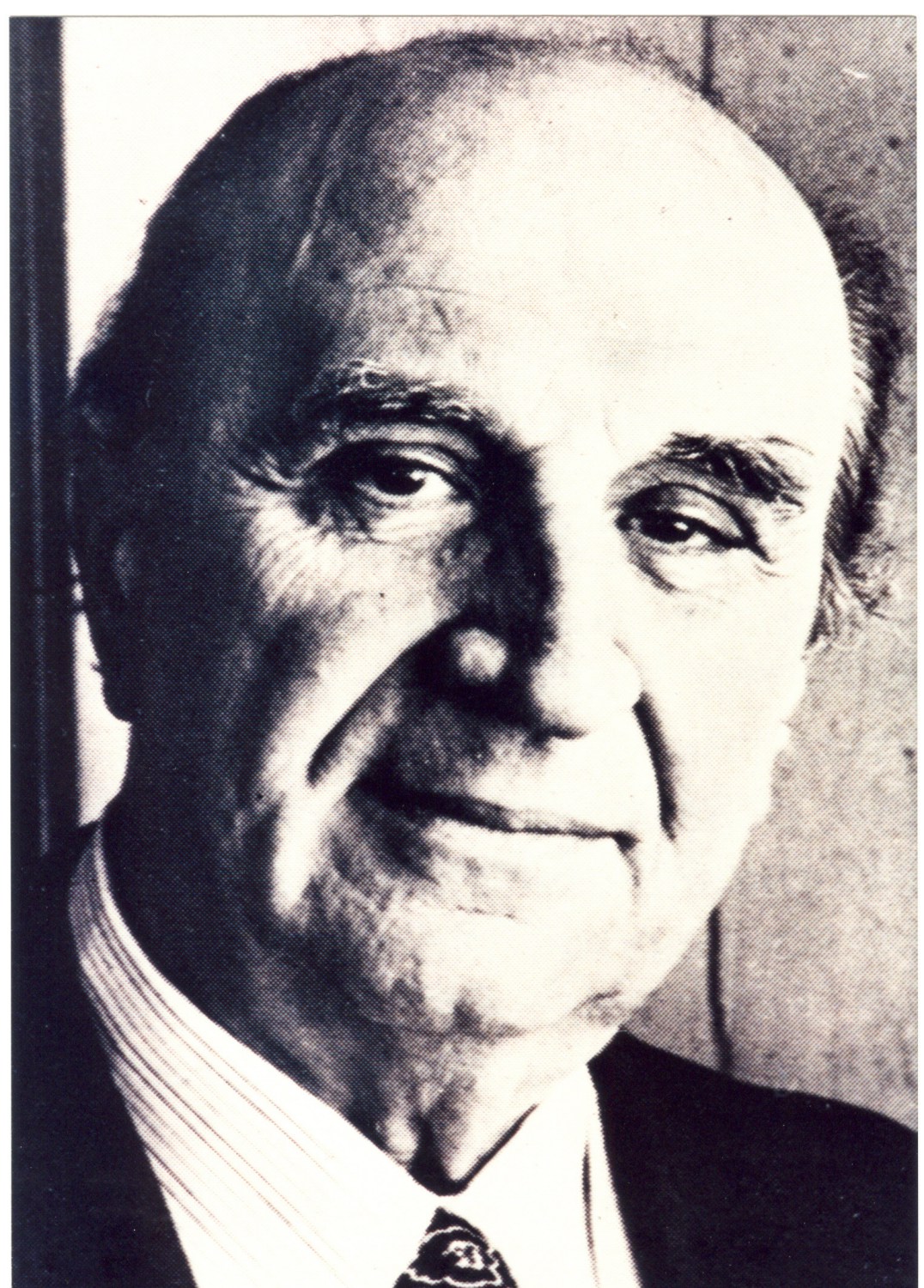
Antiochos - Gerasimos Evangelatos Archive
Antiochos Evangeliatos studied at the Law School of the University of Athens and at the State Conservatory of Leipzig. He had also studied philosophy and art history at the University of Leipzig while being a student of the great conductor Felix Weingartner in Basel, Switzerland. After his return to Greece, he became a professor and then artistic director of the Hellenic Conservatory in the period 1933-1974 and chief musician of the National Opera from 1940-1972. Antiochos Evangeliatos had been honored by King Paul with the Golden Cross of George I and with the Order of Phoenix. He was also awarded the Composition Prize of the Academy of Athens. He was one of the pillars of the National Music School and is recognized as one of the most important personalities of Greek musical life in the 20th century.
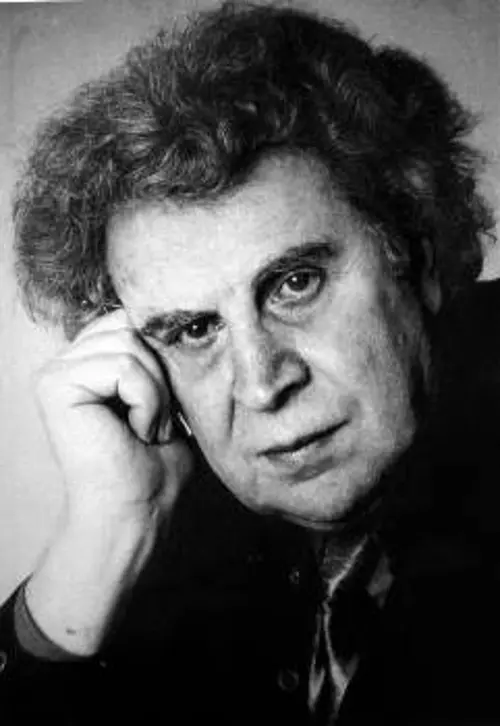
Mikis Theodorakis Archive
Mikis Theodorakis was born in Chios, on June 29, 1925. He studied at the Athens Conservatory and the Conservatoire of Paris. In 1957 he won the Gold Medal of Composition at the World Youth Festival in Moscow, in 1959 he was awarded the Copley Prize and in 1963 the Sibelius Prize. He has received many awards for his contribution to democracy and culture and has been awarded an honorary hD from the Universities of Athens, Thessaloniki, Macedonia, Crete and Thessalia. He worked on all styles of music and he extended into areas beyond his main art, such as poetry, prose, philosophy and politics. His work is divided in three main periods: A) 1937-1960: He composes orchestral works and chamber music according to western forms and contemporary techniques. B) 1960-1980: He tries to combine the symphony orchestra with traditional instruments and creates new vocal forms and ensembles, which evolved to an artistic movement with a unique popular response. C) 1981-: He returns to symphonic forms and explores the operatic style. On December 15, 1997, Mikis Theodorakis donated his personal archive to the Music Library of Greece “Lilian Voudouri”. The archive, impressive in size and thematic variety, includes manuscript scores and texts, press cuttings, posters, programmes, audio-visual material, dissertations – studies, photographs, medals and various publications. His manuscripts, both scores and texts, as well as part of the music programmes collection* are now available online. The musical manuscripts include works, sketches and arrangements classified in chronological order. The manuscript texts are also classified in chronological order according to their type, and are divided in four major thematic categories: Correspondence*, Political, Cultural and Various Texts. Metadata translation: Gail Holst-Warhaft * According to the Composer, the musical compositions, sketches, notes, references and generally the material that has not been presented in concerts or has not been released on record, is a merely archival material and does not have the approval of the Composer to undergo any kind of editing in order to be presented or published in the future. ** Due to intellectual property laws only the metadata of the correspondence and the music programme collections are available online . Access is available only within the premises of the Library.
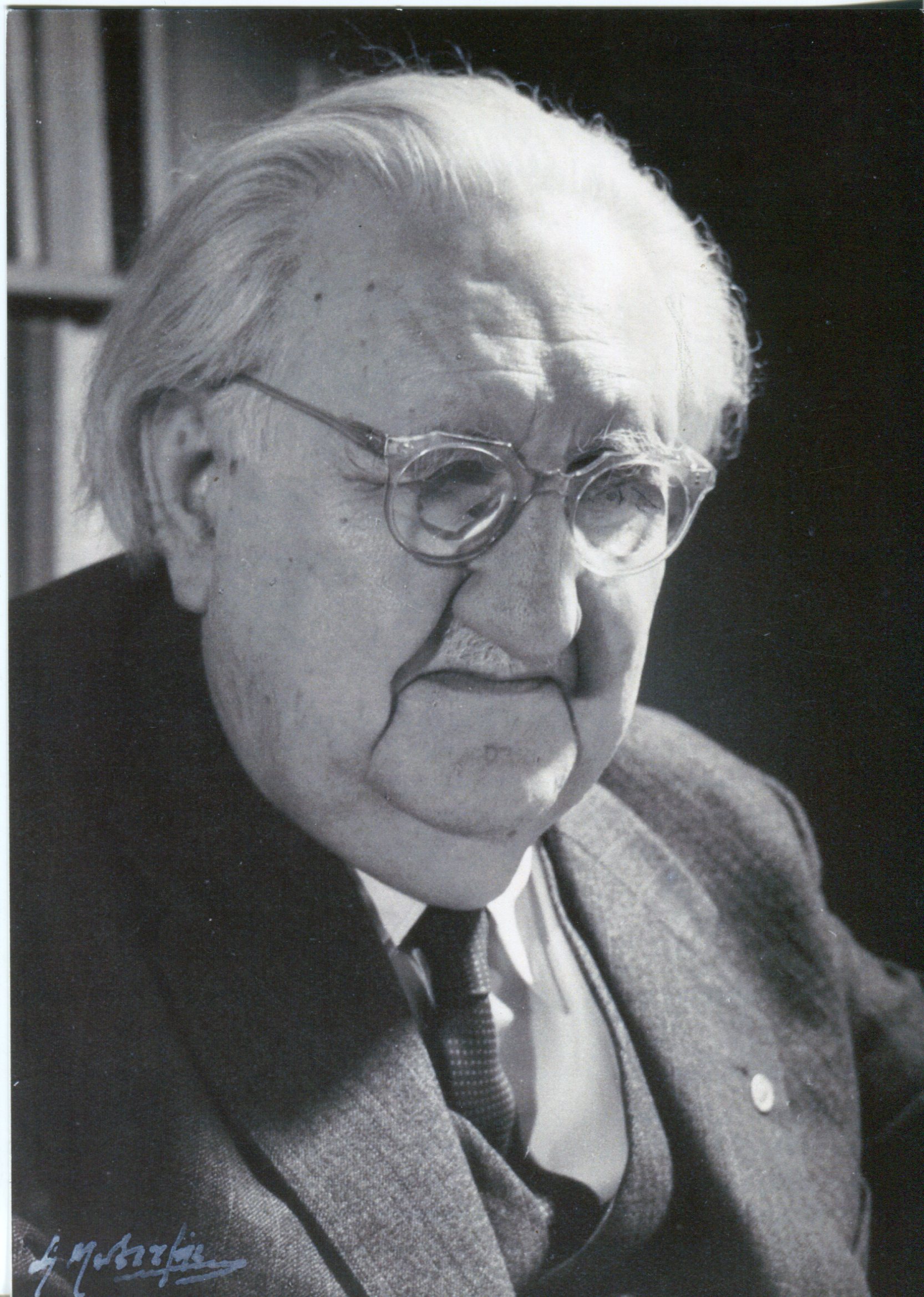
Manolis Kalomoiris Archive
The composer Manolis Kalomoiris (1883-1962), of Samian origin, was born in Smyrna, where he took his first music lessons, which he continued in Athens and Constantinople. He studied piano, theory and composition at the Vienna Conservatory (1901-1906). Between 1906-1910 he taught at the Obolensky Lyceum of Music, in Kharkiv, Russia. In 1910 he settled permanently in Athens and taught at the Athens Conservatory. In 1919 he founded the Hellenic Conservatory, which he directed until 1926 when he founded the National Conservatory. He remained in the position of director until 1948 when he took over as chairman of the board of directors, a position he held until his death. He was general inspector of military musicians, president and honorary president of the Union of Greek Musicians, was elected a member of the Academy of Athens, was honored with the National Excellence of Letters and Arts and other distinctions. Founder of the National Music School in Greece, he draws his inspiration from Greek tradition and Greek song, as well as from the poetry and literature of his time. He composed over 220 works, which include a variety of genres. Among them: five operas, three symphonies, symphonic poems, a piano concerto, a violin "concerto", song cycles for voice and orchestra and for voice and piano, piano works, chamber music, choral works, as well as works for children (choral, piano works).He also wrote music education books.
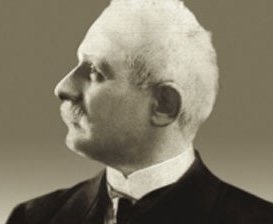
Nileas Kamarados Archive
Nileas Kamarados (1847-1922) came from the island of Chios and lived most of his life in Istanbul where he studied psalmody with Gerasimos Kanellidis, music theory with Panagiotis Kiltsanidis and European music with Ioasaf the Russian. As a researcher of Byzantine Music he published many studies, mostly on rhythm and the Byzantine tonal system. He taught and mentored many students, who later became distinguished musicologists and chanters. As a “Protopsaltis” (first chanter), he made a name for his own special chanting style, which evolved to a “Scholi” (“School”). Some of his most well known courses were the “Pollapla”, “Kyrie eleison”, and “Dynamis Agios o Theos”. Nileas Kamarados’ archive came to the Music Library of Greece “Lilian Voudouri” in 1996 and includes ecclesiastical chants and texts written between the end of the 18th and the middle of the 20th century. After his death, the archive came to his son-in-law Nikolaos Vlachopoulos, who copied, classified and enriched the already existing material.
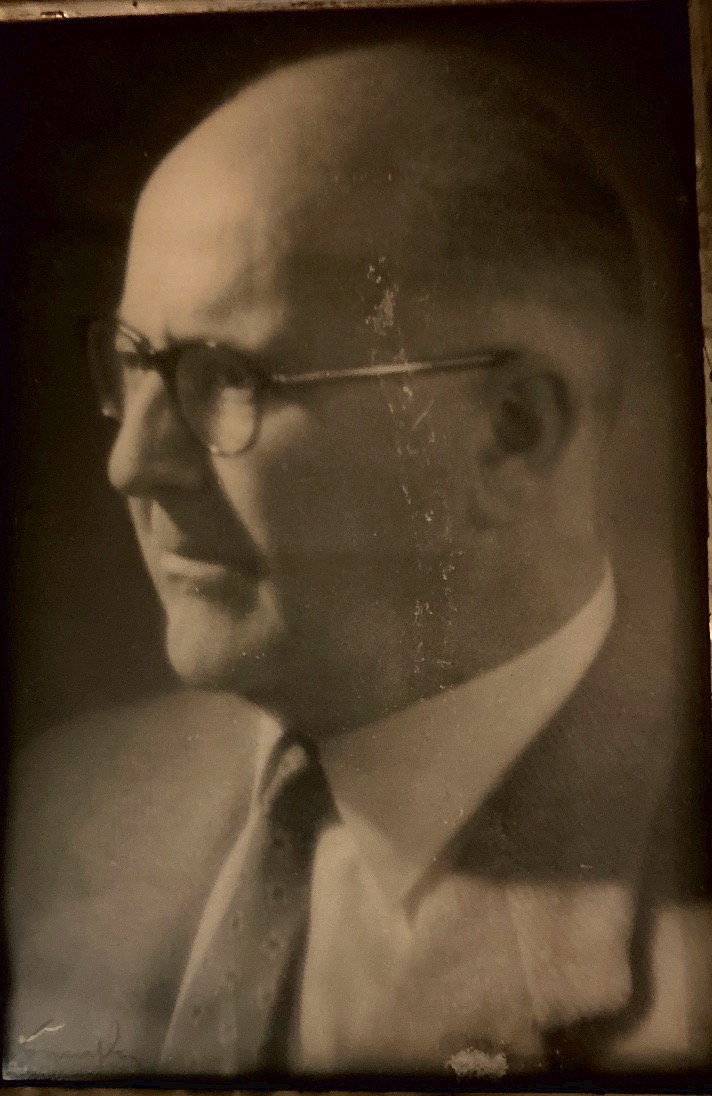
Alekos Kontis Archive
Alekos Kontis was born and died in Athens. He was a composer, pianist and chief musician, student of Saint – Saens and G. Haas. One of the composers who co-signed the minutes of the Foundation of the Union of Greek Musicians.
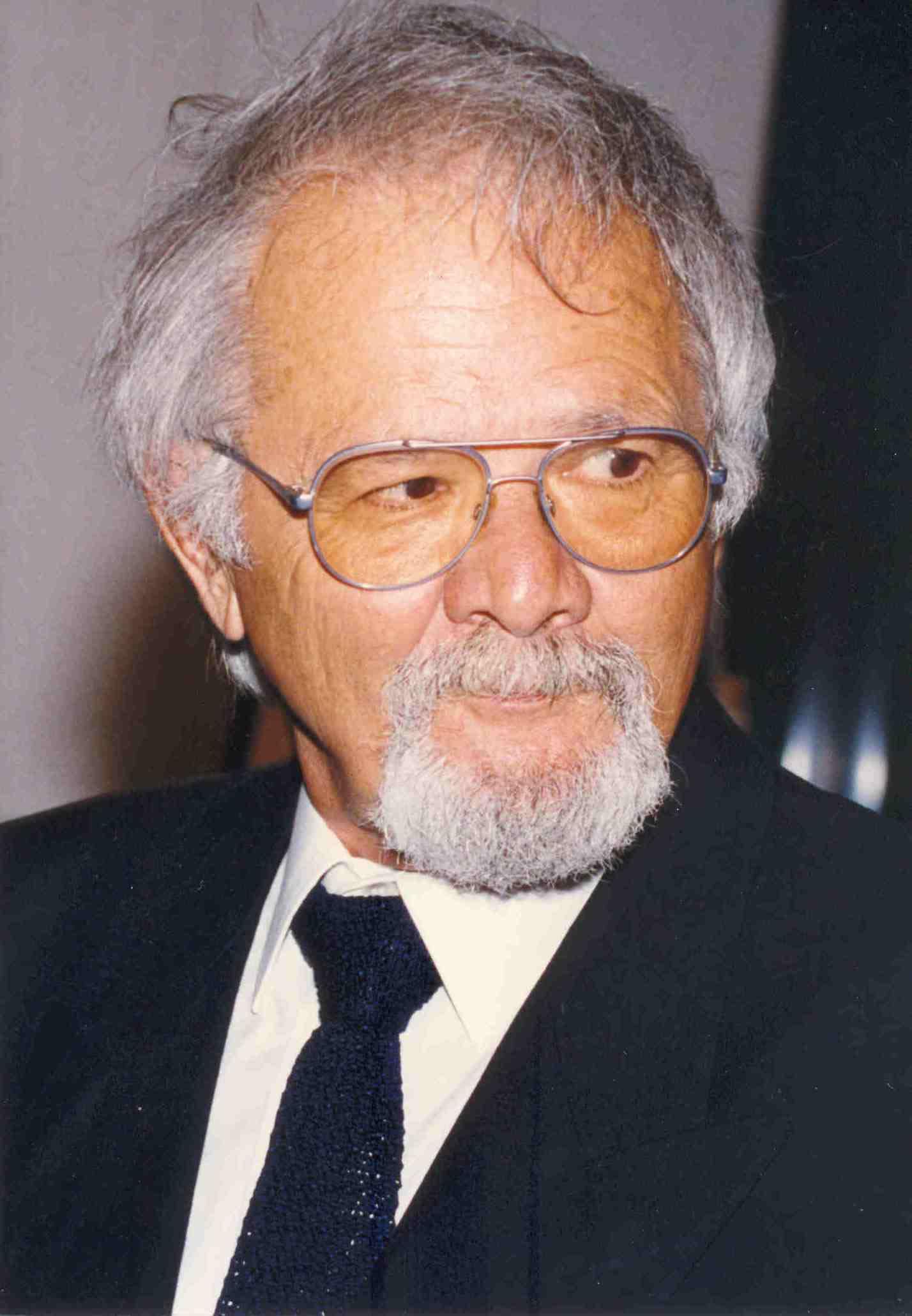
Argyris Kounadis Archive
Argyris Kounadis was born in Istanbul in February 1924 to Kefalonian parents. Coming to Greece, he studied piano in Athens at the Athens Conservatory with professor Sp. Faradatos and advanced theory at the Hellenic Conservatory with professor Papaioannou. He continued his studies in what was then West Germany with a scholarship he received from the I.K.Y. (1958). After completing his studies, he settled permanently in Freiburg, Germany, and his activity was divided between conducting, composing and teaching, having been a professor at the city's highest academy for many years. He wrote many types of classical music such as chamber music, music for operas, but also music for theater and cinema (in more than ten films), as well as the musical composition of many Greek songs of the 1970s and 1980s. From his total works, stand out the "Chorus" for symphonic orchestra, the "Heterophonic idioms" for symphonic orchestra as well, "Quinteto for wind instruments", "Quartetto for strings" etc. Also, the more sarcastic operas: "The Rubber Coffin", "The Enchanted Allegories", "Escape", "Teiresias", "Bacchaeus" and elsewhere. He died in 2013
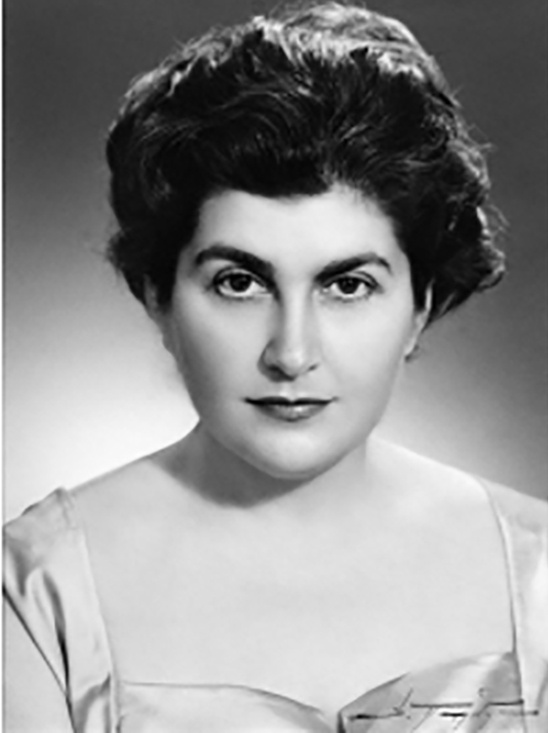
Rena Kyriakou Archive
Rena Kyriakou was born in Heraklion, Crete, on 25 February 1917. Child prodigy, internationally acclaimed pianist, composer, and pedagogue. She was a member of the Greek Composers’ Union. The daughter of well-known architect Dimitrios Kyriakou and Kakia Archaniotaki, Rena grew up in a cultured environment that appreciated her talent and fostered its development very early on. On 31 December 1923, at the age of six, she made her first public appearance at the Parnassos Concert Hall, performing exclusively her own compositions (from Fifteen Children’s Pieces [Δεκαπέντε παιδικά κομμάτια]), which were greeted with positive comments by such musicians as Georgios Lambelet, Marios Varvoglis, Georgios Sklavos, Dionysios Lavrangas, Theodoros Synadinos, Manolis Skouloudis, Ivan Boutnikov, and Frank Choisy. These early works sustain a programmatic character with a marked romantic idiom. The Kyriakou family then went to Paris in order to seek the expert opinion of neuropathologists and musicians. According to the verdict issued by Charles Richet and the composers of the modern French school Albert Roussel, Gabriel Pierné, Jean Déré, and Vincent d’Indy, little Rena was a performing and composing genius. In Berlin, she played in the form of auditions before Franz Schreker, George Szell, and Max Von Schillings, winning praise once again. She completed theory and harmony with Richard Stöhr (Munich and Vienna), and Dr. Paul Weingarten (Vienna). She had her first piano lessons with Hilda Müller-Pernitza, Anghelos Kesisoglou, and Paul Wittgenstein. In Paris, Isidor Philipp, Gabriel Pierné, and Nadia Boulanger prepared her for the CNSMDP entrance exams. In September 1930, among 124 candidates, Rena Kyriakou was among the top five, and was admitted to the CNSMDP, in the piano class of Isidor Philipp, and the harmony class of Jean Gallon. In 1931, her works Kloster, op. 1/Α.Κ.Σ.Ρ.Κ. 35, and Burlesque no. 1, op. 1/Α.Κ.Σ.Ρ.Κ. 36, were presented at the Société Nationale de Musique de Paris concerts (the first participation of a Greek female composer), receiving excellent reviews. In 1933, her composition teachers Henri Büsser and Jean Gallon, sure of her success, proposed her for the 1934 Prix de Rome. Elena Venizelou (who financed her studies) did not allow her to take part in the competition. In 1932, Rena Kyriakou was awarded the Deuxième Prix de Piano for her performance of Fryderyk Chopin’s Sonata in B flat minor; in 1933, she graduated from the CNSMDP, winning the Premier Prix de Piano for her performance of Robert Schumann’s Symphonic Variations, op. 13, and an atonal work by Florent Schmitt. The Premier Prix was her ticket to the historic concert halls of Europe and America, where she introduced herself as a composer too, placing her works among those of Chopin and Liszt, or playing them as encores. She signed a contract for a world tour with the Office Théâtral Européen. At an international level, she got enthusiastic reviews, both for her high-quality interpretations and the originality of her compositions; the music critics placed her among the top musicians of the time. She gradually came to the decision to devote most of her time to discography. She passionately dedicated herself to recordings, convinced that they were the way to remain in her audiences’ consciousness. With Isidor Philipp’s consent, she turned to research and promotion of piano works by hitherto neglected composers like Felix Mendelssohn, Emmanuel Chabrier and Isaac Albéniz, producing their complete works in collaboration with Vox. For the same company, she recorded works by Antonio Soler, John Field, Jan Dusík, Enrique Granados, Fryderyk Chopin, and Gabriel Fauré, among others. She had a prodigious memory, and never used a score, to the surprise of all the great conductors she collaborated with, such as Hans Swarowsky, Carl August Bünte, Robert Wagner, Edmond Appia, Hubert Reichert, Mathieu Lange, Karl Rucht, Christian Vöchting, Václav Smetáček, Rudolf Kempe, Maurice Le Roux, Armin Jordan, Rudolf Moralt, Toni Louis Alexandre Aubin, Henri Rabaud, Sir Malcolm Sargent, Georg Solti, Jean Meylan, Dimitri Mitropoulos, Dimitris Chorafas, Miltiadis Karydis, Theodoros Vavayannis, and Andreas Paridis. Last photo with Tomas, Hanuš and Willi. She also collaborated with such famous orchestras as the Vienna String Symphony Orchestra, the Vienna Pro Musica Orchestra, the O.S.R., the London Philharmonic Orchestra, the Philharmonia Hungarica, the Orchestre de la Société des Concerts du Conservatoire de Paris, the Torquay Symphony Orchestra, the Westfalen Symphony Orchestra, the Innsbruck Symphony Orchestra, the Berlin Symphony Orchestra, and the Athens and Thessaloniki State Orchestras. Her recordings of Chabrier are considered superior to those by Arthur Rubinstein, Marcelle Meyer, Pierre Barbizet, Paul Badura-Skoda, and Louis Kentner. Her discography of Mendelssohn has been deemed better than the corresponding renderings by Guiomar Novaes and Rudolf Serkin, and equal to those of Cortot, Horowitz, Perahia και Thibaudet, while her Haydn recordings were pronounced superior to those of Fritz Neumeyer. She was made Dame of the British Empire, and Chevalier de France, L’Ordre des Arts et des Lettres, for her interpretations of Mendelssohn’s and Chabrier’s complete works respectively. She became the third honorary member of the International Mendelssohn Society after Pablo Casals and Alfred Cortot. The Viceroy of Yugoslavia conferred the Croix de l’Ordre de Saint Sava, Chevalier de Yougoslavie, upon her. In 1943, she premiered her Concerto for Piano and Orchestra, op. 18/Α.Κ.Σ.Ρ.Κ. 74 (the first piano concerto by a Greek female composer), with conductor Theodoros Vavayannis and the Athens State Orchestra, at the Pallas Concert Hall. It was performed again in Geneva in 1954, with the O.S.R. under the baton of Jean Meylan, and at the Athens Concert Hall in November 2009, with pianist Domna Evnouchidou, and Miltos Logiadis conducting the Athens State Orchestra. It was difficult for Rena Kyriakou to achieve recognition as a composer in Greece, due to the different sound of her works as well as her sex. She was active at a time when Greek music had to be ‘national’ in character in order to survive. And at such a time, she dared to propose her own personal idiom. Greek audiences were not prepared to appreciate experimentation of that kind. Her works Tango, Α.Κ.Σ.Ρ.Κ. 28, and Burlesque no. 2, op. 9/Α.Κ.Σ.Ρ.Κ. 54, were published by Durand, Paris, while Perpetuum Mobile, op. 15/Α.Κ.Σ.Ρ.Κ. 70, was published by Carl Fischer, New York. From June 1950, she served repeatedly as jury member at major piano competitions, like the annual CNSMDP competition, the Concours International d’Exécution Musicale de Génève, and the Montreal International Piano Competition. Rena Kyriakou died of cancer at Moschato, Athens, in August 1994. Christina K. Giannelou PhD, Historical Musicology – Piano soloist [English translation by Helena Grigorea]
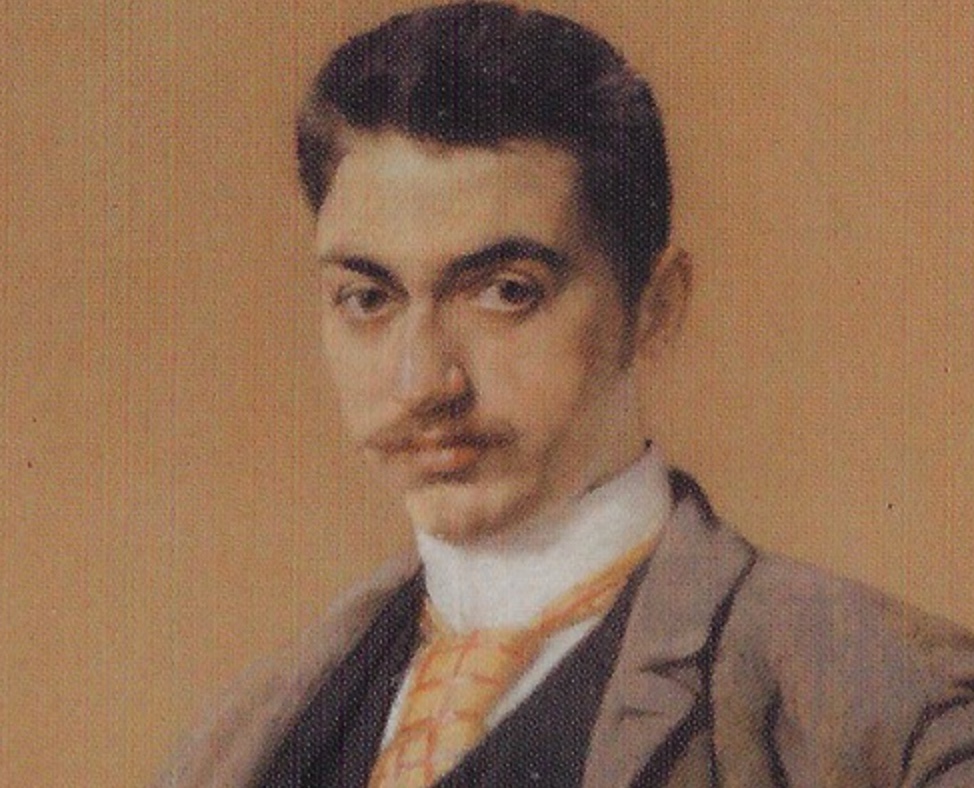
Dimitrios Lialios Archive
Dimitrios Lialios was born in Patras in November 1869. From a young age he started violin and piano lessons in his home town with the Italian tutor August Tiveri. At the age of 15 he moved to Zurich to study mechanical engineering, but he soon gave up this effort and ended up in 1891 in Munich, where he studied music with the famous educator and composer Ludwig Thuille until 1907.He then returned to Patras where he founded an orchestra compiled by amateur musicians from the local society. In 1916 he married the soprano Irene Pallis with whom, four years later, he moved again to Munich, where he served as vice consul of Greece until 1935. He died in Athens on 13 March 1940. Most of his compositions reflect the spirit of the German romanticism in the style of J. Brahms and F. Liszt, clearly influenced by his stay in Munich. However, in his early works that were composed under the guidance of his first tutor Italian influences can be traced. Some of these works were published in Italy at that time. The composer’s archive was donated to the Library by his heirs and it mainly consists of autograph manuscripts and a few publications. More precisely it includes: 1) Chamber music works (mainly string quartets and works for violin and piano) 2) Choral works 3) Orchestral works 4) Songs The digitized archive is fully available online for education and research purposes.
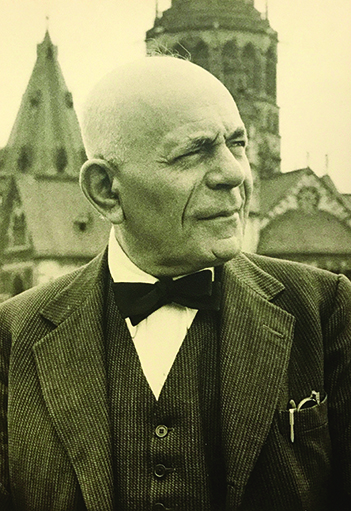
Petros Petridis Archive
Petros Petridis was born in Nigdis, Cappadocia, in 1892. He studied at Zografio Gymnasium and Robertio College in Constantinople, while at the same time he started private piano lessons. In 1911 he went to study in Paris where he lived for several years of his life. and at the same time he worked as a music critic collaborating with several Greek newspapers. In 1958 he was elected a member of the French Academy of Fine Arts and a year later he was elected a regular member of the Athens Academy. He died in Kifissia in 1977.
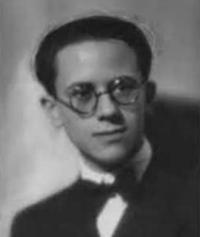
George Platon Archive
Georgios Platon was born in Lixouri, Kefalonia on April 1, 1910. The first years of his life he lived in Corfu and from 1920 in Heraklion, Crete, where he received his first music lessons from the Italian chief musician Antonio Biferno. After finishing high school, he moved to Athens and began piano lessons with Theseus Pindios, at the Hellenic Conservatory, from whose class he graduated five years later with a piano diploma, first prize and honors. At the same time he attended theoretical lessons and composition in the classes of M. Varvoglis and A. Kontis and at the same time composed his first works, which from 1935 began to be performed by various orchestras and musical ensembles in Greece. After graduating from the Hellenic Conservatory, he continued his studies in Germany taking private lessons with Egon Petri in order to perfect his piano skills. After his return to Greece, he worked as a pianist of the Palace Orchestra (1949) while in the period 1952-1972 he was first pianist, musical trainer and assistant conductor of the National Opera. Finally, he was the pianist of the "Various Music Quintet" of the EIR. But apart from his career as a pianist and composer, G. Platon also had a rich educational activity. He was a professor of piano and composition at the Hellenic Conservatory of Athens and was even director of its branches in Sparta and Heraklion. The state through the Ministry of Culture, recognizing his contribution to the development of music in Greece, awarded him a lifetime pension. He died on June 24, 1993.
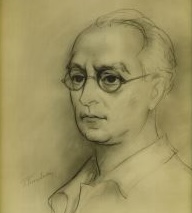
Georgios Poniridis Archive
George Poniridis (1892-1982) was born in Chalkidona, Istanbul. He studied violin and music theory at the Brussels Conservatory (1910-1912) and the Schola Cantorum in Paris (1919-1925). Poniridis worked as a violinist in Belgium, France and Germany and as a choir director in Paris. He was head of the department of music in the Ministry of Education (1943-1959) in Greece and member of the Supreme Board of Music. George Poniridis had a low profile as a musician in the area of scholarly Greek music. Today he is well known for his symphonic works, his works for piano and his songs. Since childhood, he loved Byzantine music; in tradition he discovered a source of compositional inspiration that he adapted into new compositional techniques. A flowing melodic line characterizes his musical style, while the influence of the Byzantine and folk tradition is obvious in the tonal, melodic and rhythmical elements of his works. He also showed great interest in contemporary compositional trends and unusual instrumental combinations of his time. In 2001, part of the composer’s archive, intact after his death, came to the Music Library of Greece “Lilian Voudouri”. It includes manuscript scores and texts, press cuttings, various publications and photographs.
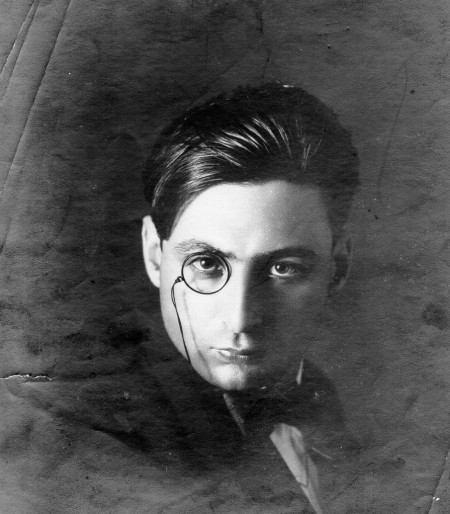
Emilios Riadis Archive
Εmilios Riadis (1880-1935) was born and grew up in Thessaloniki. Both a composer and poet, he is considered as one of the most significant representatives of the Greek National School of Music. Riadis studied piano and music theory with Dimitrios Lallas, a former student of Wagner, and continued his studies at the Royal Academy of Arts in Munich. From 1910 to 1915 he lived in Paris, where his works were successful and very well received by the critics. In 1915 he returned to Thessaloniki as a Piano Teacher at the newly founded State Conservatory of Thessaloniki; in 1923 he was awarded the National Award in Art and Sciences. Riadis’ stay in Paris, as well as his contacts with composers representing the newer French school had a great influence in the shaping of his musical style, in which many impressionistic elements can be found. Songs have a predominant position among his works that extend to almost all musical styles. Riadis’ songs are considered among the masterpieces of Greek music and have been interpreted by some of the greatest artists of his times. He was a restless and unsatisfied spirit, always seeking something better, a fact that becomes obvious in the repetitive corrections in his manuscripts and the revisions he made to already published works. Mrs. Ismini Tzermia-Sakellaropoulou donated part of the composers archive to the Music Library of Greece “Lilian Voudouri” in 2000. It includes manuscript scores and texts, press cuttings, various publications and photographs. The digitised collection also includes the part of that archive belonging to the State Conservatory of Thessaloniki, a copy of which the “Lilian Voudouri” Library retains.
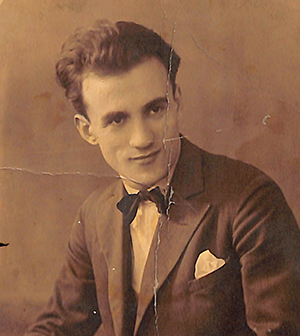
Nikos Skalkottas Archive
Nikos Skalkottas Archive was taken over by the Music Library of Greece "Lilian Voudouri" in June 2018 after an agreement between Emilios Chourmouzios - Marika Papaioannou Foundation and The Friends of Music Society. The archive consists of Skalkottas own manuscripts as well as documents that G.G.Papaioannou gathered after Skalkottas death such as programs, texts, correspondence, recordings, editions, photos etc.
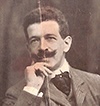
Frank Choisy Archive
Frank Choisy (1872-1966), was born in Switzerland. He was a distinguished violinist, pianist, composer, conductor and teacher who worked in Greece in the early 20th century. He is well known as a Professor at the Athens Conservatory, where he taught violin, counterpoint and chamber music. He was also conductor of the Athens Conservatory Orchestra (1903-1907). Choisy introduced the History of Music course and was in charge of the school of violin, wind instruments and theory of music. He was also director (Directeur Fondateur) of the Conservatoire Populaire de Musique in Geneva. Under Frank Choisy’s direction, the Athens Conservatory Orchestra premiered Dionysios Lavragkas’ First Greek Suite and also gave the first performance of Beethoven’s 5th Symphony in Greece. Several of Choisy’s works were often performed at the Athens Conservatory concerts. He and Armandos Marsik are considered as the most significant foreign musicians in Greece at the dawn of the 20th century. Choisy’s archive came to the Music Library of Greece “Lilian Voudouri” in 2002. It includes manuscript compositions and arrangements of other composers’ works, writings on music theory and education, posters and concert programmes. Among his manuscript scores there are works inspired by the Greek music tradition, such as Suite grecque pour petite orchestre, Danse grecque – Kalamatianos, Danse grecque – Tsamikos, La grand ville, Souvenir d' Athènes (Neuf épisodes et un supplément) and others.
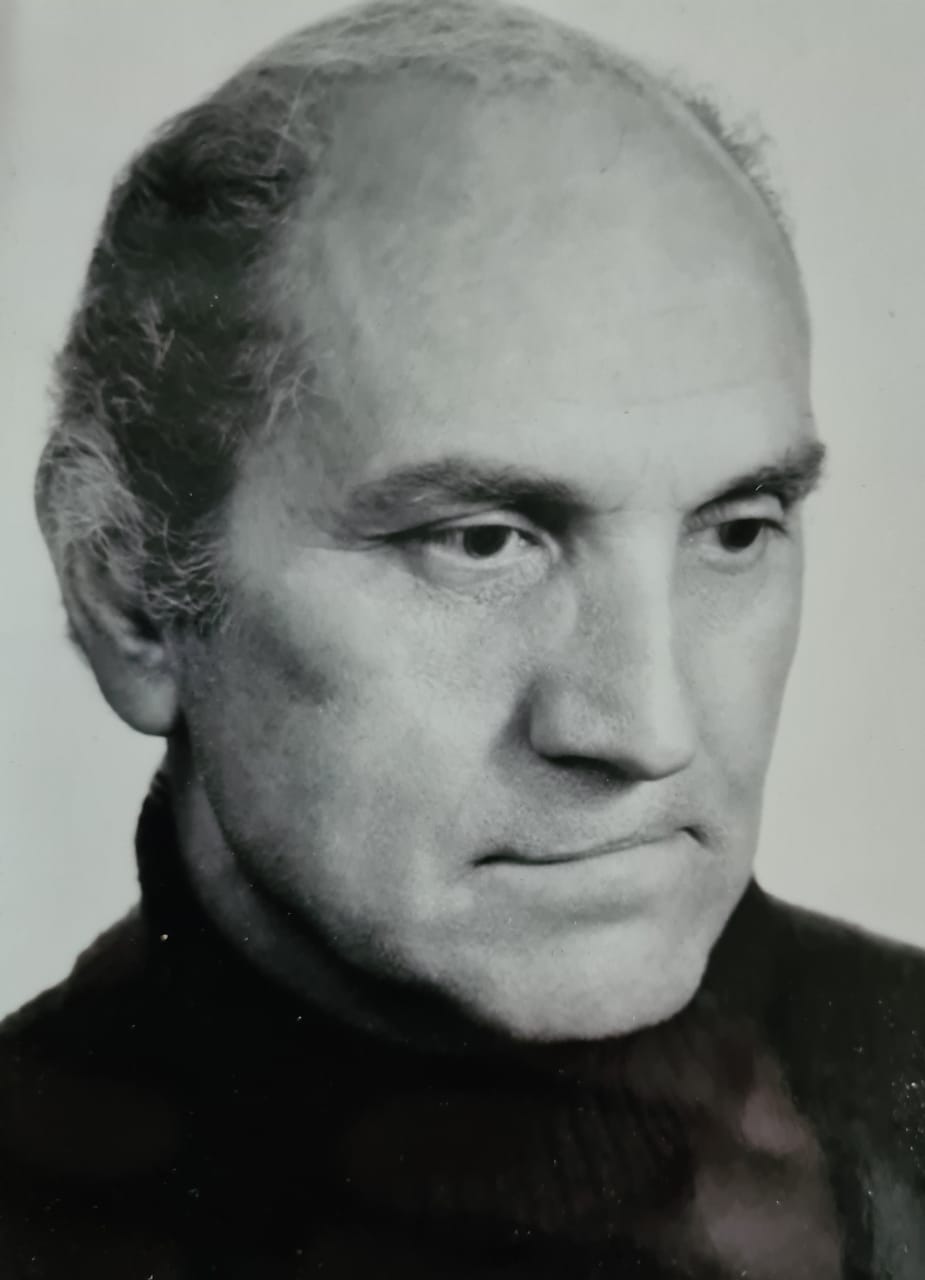
Iacovos Chaliasas Archive
Iakovos Haliasas began his musical studies at the age of 13, studying classical guitar with the Greek-Italian Stefanos Stangvali (1933-1937). He studied at the Hellenic Conservatory with M. Varvoglis Advanced Theory, Composition and Orchestration, and piano with Aliki Lykoudis and Kostas Sfakianakis. He graduated with degrees in Harmony (1946) and Counterpoint - Fugue (1948). In 1953 he won the State Scholarship Foundation's Composition Competition for Abroad. However, he continued his studies in Greece, studying the newest styles and contemporary musical trends. Alongside the composition, he wrote a number of musical articles in magazines ("Music", "Free Letters", "Lyric Cosmos"), while he collaborated on the encyclopedia "Helios" (1975). His works have been performed in Greece and in many countries abroad. From 1970 he was a member of the Board of the Union of Greek Musicians, from 1981-87 general secretary and from 1988-92 its vice-president. In 1981 he received the 2nd Prize in the 1st Panhellenic Music Composition Competition and in 1982 a distinction in the 2nd Choral Composition Competition in Trento, Italy. He wrote works for orchestra, concertos, chamber music, choral works, music for ballet, songs, etc., most of them in free polytonic or atonal writing. His most important works are: "Three Symphonic Sketches", "Horizons", "Symphony no. 1" (for large orchestra), "Adagio", "Diptych" (for string orchestra), "Concerto" (for piano and orchestra) etc.


